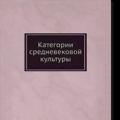In the Russian language, soft and hard signs have one common function - dividing.
1. Separating Kommersant written before vowels E, Yo, Yu, I after Russian or foreign language prefixes ending in a consonant or in compound words, where the first part is two-, three-, four-, and the second part begins with E, Yo, Yu, I. For example, corrosive, subjective, two-tiered.
REMEMBER: courier, four-act.
2. Separating b written before vowels E, E, Yu, I, I inside a word. Found in foreign words b before ABOUT, For example: blizzard, dress, nightingales, battalion.
3. b used to denote softness at the end of a word: shampoo, stone; after L before other consonants (except L): balsam, glazier; after a soft consonant before a hard one: letter, nanny; in numerals (denoting tens and hundreds) from 50 to 80 and from 500 to 900: eight hundred, seventy.
REMEMBER: b not written in combinations H And SCH with other consonants, in combination of letters NN, ZN, SN, NT, ST, ZD: babysit, nocturnal, monkey.
1. b is used to denote grammatical forms:
at the end of third declension nouns: mouse, rye;
· at the end of adverbs ending in hissing: all over, backwards, gallop, backhand(BUT: already, married, unbearable);
· in the infinitive form of the verb : wash, love;
· in the 2nd person singular present and future tense: eat, write;
· in the instrumental case: children, eight;
in particles: only.
Task 1. Rewrite the words, insert the missing letters.
1) in...cautious, 2) from...reveal, 2) from...yat, 4) white...floor, 5) piano...yano, 6) adjutant, 7) n...yuans, 8) nine...yu, 9) head...yuzhit, 10) inter..yuer, 11) os...lamprey, 12) p...edestal, 13) film...capacity, 14) warm...capacious, 15) trans...European, 16) third...annual, 17) three ...tiered, 18) four...storeyed, 19) pass...yans, 20) champignon...on. 21) without...nuclear, 22) var...irovanie, 23) bondage...ero, 24) in...reality, 25) injection...injection, 26) from...yang, 27) mail...on, 28) mouse...yak, 29) fe...eton, 30) inter...linguistic, 31) un...unified, 32) with...capacious, 33) feld...jaeger, 34) four...tier, 35) kan...on, 36) man...chursky, 37) district... e, 38) hugs, 39) conjunctivitis, 40) drive up.
Topic: Text analysis.
Exercise No. 1
Last year something bad happened to me. I was walking along the street, slipped and fell... I fell badly, it couldn’t have been worse: my face hit the curb, I broke my nose, my whole face was broken, my arm popped out in my shoulder. It was approximately seven o'clock in the evening. In the city center, on Kirovsky Prospekt, not far from the house where I live.
With great difficulty I got up - my face was covered in blood, my hand hung like a whip. I wandered into the nearest entrance 5 and tried to calm the blood with a handkerchief. Where there, she continued to whip, I felt that I was holding on in a state of shock, the pain was rolling in more and more, and I had to do something quickly. And I can’t speak - my mouth is broken.
I decided to turn back home.
I walked down the street, I think not staggering: I walked holding a bloody handkerchief to my face, my coat was already glistening with blood. I remember this path well - about three hundred meters. There were a lot of people on the street. A woman and a girl, some couple, an elderly woman, a man, young guys walked towards me, all of them at first looked at me with curiosity, and then averted their eyes, turned away. If only someone along this path would come up to me and ask what was wrong with me, if I needed help. I remembered the faces of many people - apparently with unconscious attention, heightened expectation of help...
The pain confused my consciousness, but I understood that if I lay down on the sidewalk now, they would calmly step over me and walk around me. We need to get home.
Later I thought about this story. Could people mistake me for being drunk? It seems that no, it is unlikely that I made such an impression. But even if they took me for a drunk... They saw that I was covered in blood, something happened - I fell, hit myself - why didn’t they help, didn’t they at least ask what was wrong? So, passing by, not getting involved, not wasting time, effort, “this doesn’t concern me” has become a familiar feeling?
Thinking, I remembered these people with bitterness, at first I was angry, accused, perplexed, indignant, but then I began to remember myself. And I looked for something similar in my behavior. It’s easy to blame others when you’re in a difficult situation, but you definitely have to remember yourself. I can’t say that I had exactly such a case, but I discovered something similar in my own behavior - the desire to step away, evade, not get involved... And, having exposed himself, he began to understand how familiar this feeling had become, how it had warmed up, how it had quietly taken root.
Unfortunately, our abundant conversations about morality are often too general. And morality... it consists of specific things - of certain feelings, properties, concepts.
One of these feelings is the feeling of mercy. The term is somewhat outdated, unpopular today and even seems to have been rejected by our life. Something characteristic only of former times. “Sister of mercy”, “brother of mercy” - even the dictionary gives them as “obsolete.” , that is, outdated concepts.
In Leningrad, in the area of Aptekarsky Island, there was Mercy Street. They considered this name obsolete and renamed the street to Textile Street.
To take away mercy means to deprive a person of one of the most important effective manifestations of morality. This ancient, necessary feeling is characteristic of the entire animal community, the bird community: mercy for the defeated and injured. How did it happen that this feeling became overgrown, died out, and turned out to be neglected? You can object to me by citing many examples of touching responsiveness, condolences, and true mercy. There are examples, and yet we feel, and have been for a long time now, the decline of mercy in our lives. If only it were possible to make a sociological measurement of this feeling.
I am sure that a person is born with the ability to respond to the pain of others. I think that this is innate, given to us along with our instincts, with our soul. But if this feeling is not used 5 and not exercised, it weakens and atrophies.
Exercise assignment:
Read the text from D. Granin's book "Fulcrum". The article is called "On Mercy". Is this text an argument? Name the main features of the text and this type of speech, prove your opinion.
1) What is the main thesis of this text? What arguments are used to prove it? Are there enough of them? What is the conclusion? Do you agree with this conclusion?
2) What types of speech, besides reasoning, are used in this text?
We repeat the spelling.
1. Final consonants in prefixes (except for prefixes on h-c) over-, under-, before-, before -, from-, about- are always written the same way, no matter how they sound: train – grind, cut – inscription.
2. Consoles without-, through-, from-, bottom-, once-, through-, through- written with a letter Z before vowels and voiced consonants, and with the letter WITH before voiceless consonants: tasteless, heartless, worldview, extremely, excessively.
3. On consoles times- (dis-) or rose- (ros-) written under stress ABOUT, written without accent A: search, search, painting, painted.
Exception: wanted .
REMEMBER: calculation, prudent, count, settle, quarrel.
4. Set-top box With- written before voiceless and voiced consonants: cut down, knock down. In words here, building, health, no way is part of the root.
Fill in the missing letters in the words:
and...following; ra…to know; be...treasured; b...shabby; and...flow; ra…reduced; deathless; ra... to provoke; ra... trample; and...scoop; r...write-off; r...investigation department, r...looking for a book, give r...list.
We repeat the spelling.
Consoles pre-, pre- differ in meaning:
a) prefix pre- close:
* to the meaning of the word “very”: cute;
* to the meaning of the word “differently”: transform, wrangle;
* denotes an action reaching an extreme degree: surpass;
b) prefix at -:
* indicates spatial proximity: coastal;
* joining or approaching: get closer, solder;
* performing an action incompletely: cover, lie down;
* bringing the action to completion: swim, accustom;
* action performed in the interests of the subject: appropriate, pocket.
It is necessary to distinguish between the spelling of words:
REMEMBER: pursue, neglect, claims, obstacle, challenger, prestige, president, prerogative, punctuation marks; pretend, privilege, private, priority.
Exercise. Write down the phrases, insert the missing letters.
1) give in to dreams, 2) give in to circumstances, 3) a picture without pr...beauty, 4) give in to misunderstanding, 5) give in to ridicule, 6) signs of kicking, 7) give in to memories . .
Dividing ъ before letters her), Yu, I, And is written:
- after consonant prefixes;
- in compound words after two- , three- , four- .
For example: once ъ rides, with ъ capacity, before ъ anniversary, about ъ reveal two ъ tiered.
Dividing b written before her), Yu,I, And in all other cases. For example: to stat b e, rouge b e, b b yut, friend b I, hand b And.
Notes
- ъ not written before A, O, at, uh (agitate, window sill, be able to, save), as well as in compound words (for example: kids).
- ъ written in foreign words after prefixes hell-, in-, con-, about-, sub-, trance- and after the first part of a compound word ( hell ъ Utah, in ъ lecture, con ъ juncture, about ъ ect, sub ъ ect, trans ъ European, Feld ъ huntsman).
- b written in some foreign words after O (battle b he, mailed b he, bull b he, comrade b He and etc.).
Letter s after consoles
After prefixes ending in a consonant, instead of And letter is written s according to pronunciation, for example: play with s play, skillful - without s tasty, without s active.
Letter And saved:
- in words with prefixes above- And inter- , For example: between And editorial, above And refined;
- in words with foreign prefixes, for example: des And information, counter And gra, trance And Ransky.
Note
In compound words, after the preceding consonant, the letter And is saved, for example: sport And inventory.
(1
ratings, average: 5,00
out of 5)
In order to rate a post, you must be a registered user of the site.
Although the letters Ъ and ь do not themselves represent any sounds, they are written in order to pronounce words correctly. Compare, for example: seed (without a soft sign) and family (with a separating soft sign). To remember when to write a soft sign and when to write a hard sign, you need to learn the following rules.
The dividing b is written inside a word (in the root or suffix, but not after the prefix) before the letters E, E, Yu, Ya, I (blizzard, weeds, fox), as well as in some borrowed (foreign) words before the letter O (broth , signor, guillotine). A soft sign usually softens the consonant sound preceding it and, in addition, forces us to pronounce an additional sound [Y].
The letter ъ is written only before e, e, yu, i in the following cases:
1. When combining a prefix ending in a consonant and a root, for example: entrance, volume, supernatural, expression of will, inter-tier.
2. In complex words after the numerals two-, three-, four-, for example: three-tiered.
3. In foreign words after foreign language prefixes ab-, ad-, dis-, in-, inter-, con-, counter-, ob-, sub-, trans- and after the initial compound particle pan-, for example: adjutant, disjunction , injection, interactional, conjuncture, counter-tier, object, subject, trans-European, pan-European.
Examples of words with the separator ъ
Arrival, approach, departure, departure, volume, pre-anniversary, express, will, manifestation, embrace, immense, furious, super natural, shooting, ruffle (hair), cower, clarified (sky), combine, ad, edible, lifting (crane).
Two-language, three-tier, four-tier.
Adjutant, injection, conjuncture, object, subject, trans-European, pan-European.
Examples of words with separator ь
Health, happiness, pours, beats, winds, curls, winds of the south, seven, another sparrow, flake, play, barrier, linen, brilliant, buryan, wind, interview , fox and, gun, I'm naughty, crawl, drink, drink, friend, serious, Tatyana, Mary, sew, sew, spill, monkey, night, leaf, tree I, bird and climbing plants, in the hive, studio, zealous (worker), (make) a speech, (own) a thing.
He’s a battle, he’s a postman, he’s a broth, he’s a pavilion, he’s a company, he’s a medal, he’s a min, he’s a champigne.
Assignment: write down 20 words each with a hard separator and a soft separator.
Filming, entry, went, entrance, announce, separation, announcement, explanation, congress, notorious, lift, scraps, embraced, cringed, pre-anniversary, explain, unwind, eaten up, furious, edible.
Lukomorye, curling, flakes, chickens, blizzard, Tatyana, monkey, serious, barrier, sparrows, linen, dress, hare, rural, trees, animals, harmony, happiness, family, girlish.
The letter Ъ - “hard sign” - is the 28th letter of the Russian alphabet. In modern language, a hard sign does not indicate a sound and serves as a kind of guide for the correct pronunciation of a number of words. However, the hard sign is one of the symbols that formed the basis of the Cyrillic alphabet and, to this day, has gone through a long and difficult path along with the development of the language.
Words with a hard sign: a little history
The hard sign has been known in Cyrillic graphics since ancient times. In the Old Russian language, the letter had a different name - “er” and in some roots it could be pronounced as “o”, and was also written at the end of words ending in a consonant, and after a prefix with a consonant before a root starting with a vowel. This use was practiced until the beginning of the twentieth century. In 1918, during the reform of Russian spelling, the writing of a hard sign at the end of words ending in a consonant was abolished. Today, words with a hard sign in the Russian language are characterized by a total number of more than 140, and the use of this letter is clearly regulated. Let's talk about this in more detail.
Basic groups of words with a hard sign and their spelling norms
Modern Russian language uses the symbol “Ъ” as a separator. The hard sign is used after consonants before the iotated vowels e, e, yu, i, mainly at the junction of morphemes.

Solid sign between prefix and root
1. After prefixes ending in a consonant, before a root beginning with a vowel, and in words with native Russian prefixes ( eat, departure, go around, cringe, sarcastic), and in words with borrowed prefixes ( counter-tier, sub-core, trans-European).
2. A separate group consists of borrowed words with a solid sign, starting with combinations ob-, sub-, ad-, ab-, diz-, inter-, con- and others, which were originally prefixes, but in modern Russian are identified as part root: object, subject, adjutant, abjuration, disjunction, injection, conjuncture.
Hard sign between parts of compound words
1) before the second root after parts two-, three-, four- ( two-tier, three-anchor, four-capacity);
2) words with a separating solid sign are highlighted separately, such as courier And pan-European;
3) if we are talking about the spelling of complex abbreviated words with a similar structure, then a hard sign is not used in them: specialist, owner, military officer, state language and others.

Hard sign in proper names and their derivatives
There are a number of nouns and derivatives from them (names of people and geographical names), where the hard sign is also used: city Kizilyurt, village Toryal, lake Jyväsjärvi, artist Guo Hengyu.
Thus, words with a hard sign in the modern Russian language are a separate group with their own patterns in spelling. Unlike a soft sign, which can be used several times in the same word, a hard sign can only be used once in one word. The above cases of using a hard sign are clear rules that must always be followed. In situations not discussed in this article, under similar conditions, a soft separating sign is used.
Dividing ъ written after consonants before letters I, yu, yo, e , conveying combinations [ j] with vowels, in the following cases.
1. After prefixes ending in a consonant. Examples:
A) in words with Russian prefixes: non-nuclear, reveal, enraged, become enraged, worn out, interlingual, get fed up, go around, departure, lift, pre-anniversary, present, disperse, detachable, eat, shrink, sarcastic, supernatural, super-capacious, super-bright ;
b) in words with prefixes of foreign origin: counter-tier, post-nuclear, post-anniversary, subunit, sub-core, superyacht, trans-European .
Words of foreign origin with initial parts are also written ab, ad, diz, in, inter, con, ob, sub, which are prefixes in the source language, but are usually not distinguished as prefixes in the Russian language. These include: abjuration, adjective, adjectivation, adjunct, adjustage, adjutant, disjunction, injection, injected, interjection, coadjutor, conjecture, conjugates, conjugation, conjunctiva, conjunctiva, conjunctivitis, conjuncture, conjunction, object, objective, subject, subjective.
2. In compound words:
A) after the initial parts two, three, four, eg: two-anchor, two-capacity, three-core, four-tier;
b) in words pan-European, courier.
3. Letter ъ It is also written when conveying foreign proper names and words derived from them (after letters that contain paired hard consonants), for example: Kizilyurt(city in Dagestan), Toryal(village in the Republic of Mari El), Guo Hengyu(Chinese personal name), Hengyang(city in China), Tazabagyab culture(archaeological), Jyväsjärvi(lake in Finland), Manyoshu(anthology of ancient Japanese poetry).
In all cases, except those indicated above, after consonants before letters I, yu, yo, e , And , conveying combinations [ j] with vowels, a separating one is written b .
Examples: ya : devil, yudyachiy, monkey, billiards, family, drunk, ears of corn, draw, shepherd's, Lukyan;yu : loach, interview, pour, family, drink, trot, fifty, sew, fut(interjection); yo : nightingale, gun, drinking, crow, serious, life, whose, sewing;ye : premiere, play, courier, entertainer, jam, calm, Vietnam, Fourier;yi : passerine, nightingales, pancakes, bearish, vary, articles, whose, Vigny.




